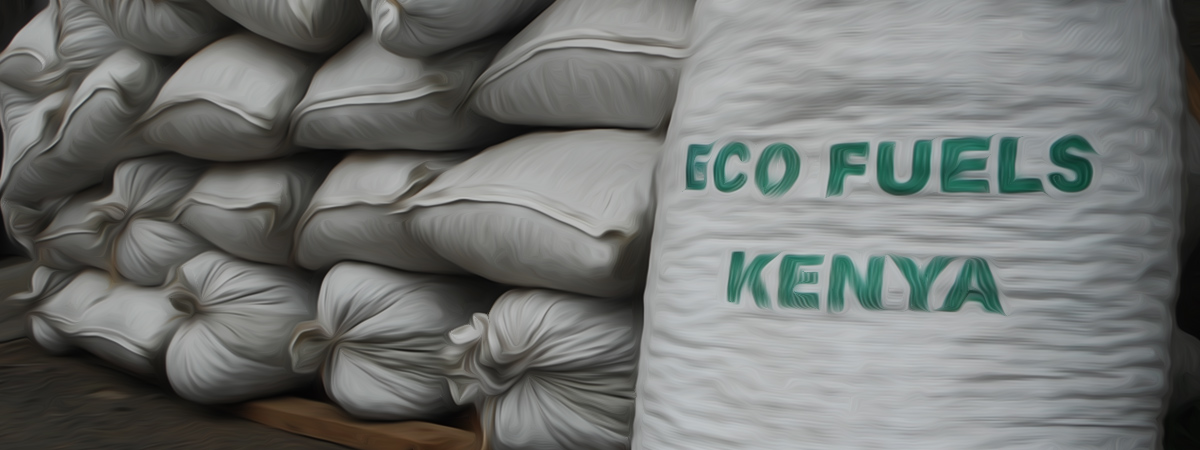Biofuel projects in Africa have a long history of being over-hyped and under-delivering. More than often this is caused by multi-million dollar investments and the unrealistically high expectations that come along with them. But Eco Fuels Kenya (EFK Group), our sustainable bioengery startup, has paved a path to long-term success by maintaining a focus on organic growth, avoiding multi-million dollar investments, and embracing our entrepreneurial roots.
How is this possible? It turns out that by avoiding huge investments we have also avoided the exact things that make those projects fail. Dependencies on plantations, unproven infrastructure, and the challenges of doing business in developing economies often kill large biofuel projects before they start generating revenue due to their complexities and lack of buy-in from local stakeholders. A prime example of this is Jatropha, which was promoted as ‘Africa’s big biodeisel’ opportunity for decades. Today, Jatropha is largely seen as a failure across the region as hundreds of millions of dollars have been lost to its development.
It turns out that by avoiding huge investments we have also avoided the exact things that make those projects fail. Tweet This Quote
But growing organically means that EFK needs to find suitable markets for the by-products of the croton nut oil (biofuel) production that will not only generate meaningful revenue today, but will make us significantly more profitable at a larger scale in the future. We spent most of the past two years selling our biofuel waste as organic fertilizer largely because of all the attention around degrading soil fertility, perceived high margins, and lack of established organic products in the market. Despite increasing sales and customer acquisition, we discovered that the need for organic farming inputs doesn’t translate to demand for products.
“Do what works.” Putting Unreasonable values into play
Earlier this year at the Unreasonable East Africa incubator in Kampala, Uganda, I realized that by spending all our time, energy, and resources trying to sell fertilizer—the one bottleneck preventing us from scale—we had become a fertilizer company rather than a biofuel company.
Dwelling on the Unreasonable mantra of “do what works,” I began to think about how everything the company had done since taking a small investment in late 2013 had progressed as desired—everything besides fertilizer sales. After the realization that we should let biofuel, the true flagship product, drive the sales, I took a page from the company’s founding business plan which included briquettes (i.e. solid biomass logs) and not fertilizer as the waste product from the biofuel pressing. With the help of a few Unreasonable mentors who operated in the bioenergy space, I started to develop a plan for a pivot that would break the company’s dependency on the sluggish agricultural sector.
By the end of the program, it was clear that the company had to find its roots as a bioenergy company to get back on track and fulfill the potential presented by croton nut. Since returning from the Unreasonable program just two months ago, the team is more energized than ever having already prototyped our briquette product and engaging with investors who are keen to see the company take flight in this new direction.
We learned invaluable lessons about our business, our markets, and most importantly our team’s ability to work with our backs against the wall—lessons that no multi-million dollar investment could have provided Tweet This Quote
Lessons learned
Opting to take a small amount of investment to try to sell organic fertilizer rather than a multi-million dollar investment for a huge biofuel project turned out to be the smartest decision our company could have made. Sure, we struggled like all hell trying to sell fertilizer to a market that is in desperate need of it, but isn’t ready to buy it. And sure, we didn’t get the luxuries of comfortable salaries or plentiful attention and supplemental prize funding that is often associated with large investments in the impact space. But we learned invaluable lessons about our business, our markets, and most importantly our team’s ability to work with our backs against the wall—lessons that no multi-million dollar investment could have provided in such a short amount of time.
Our company is done trying to force demand and has a future focused on filling it in a way that is quick and simple for our customers. Both our energy products, biofuel and briquettes, can be interchanged with inputs customers use today without any equipment modification. This will make our customer acquisition easier than not only fertilizer, but even other bioenergy solutions such as biogas or biopower, which require infrastructure investments or large economies of scale to be viable for prospect customers.
Small investment forced us to prove our model early and fail fast creating just the learning curve we needed Tweet This Quote
A new plan and bright future
With a new plan in place, we’re finally ready to get serious about growing our business. Capital we are raising today to bring our briquettes to market early next year will help us reduce the region’s carbon emissions by over 3 million metric tons and generate meaningful income for over 30,000 rural poor (living on $1.25 per day) annually within five years’ time. Beyond that, we’re planning to plant croton orchards across multiple East African countries that will prepare us for scale by providing stable supply and reverse the adverse effects of deforestation on the environment.
Despite the vast potential of EFK and the croton nut, this is still just the beginning. Small investment forced us to prove our model early and fail fast creating just the learning curve we needed to know our team and business were ready for the next stage. With the continued support of mentors, advisors and incoming investors—largely thanks to the Unreasonable network—we’ll soon start our journey building the renewable, bioenergy future of East Africa.
This the second post of a two-part series telling the story of Unreasonable East Africa fellow Myles Lutheran and his company EFK (Eco Fuels Kenya) Group. Find the first post here.



